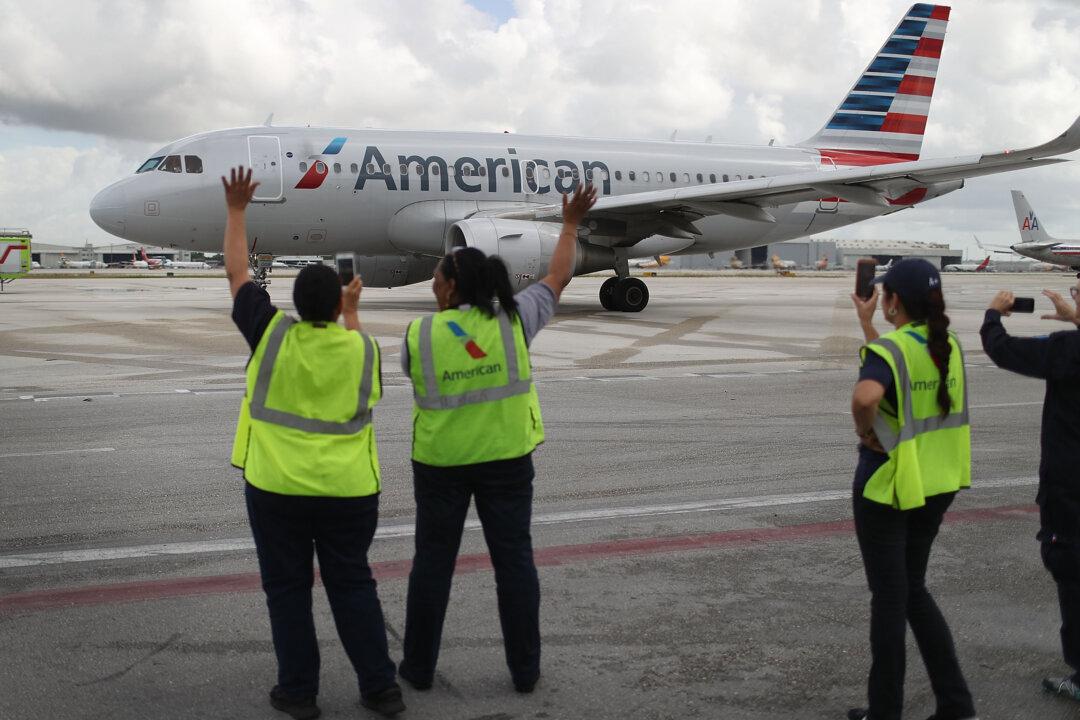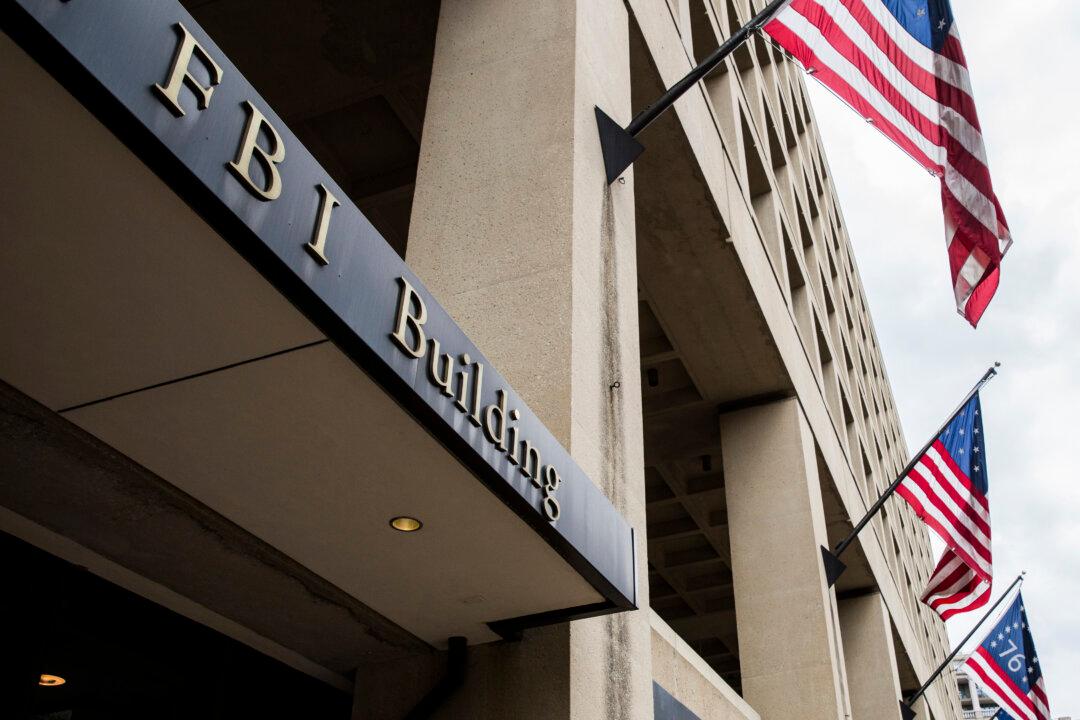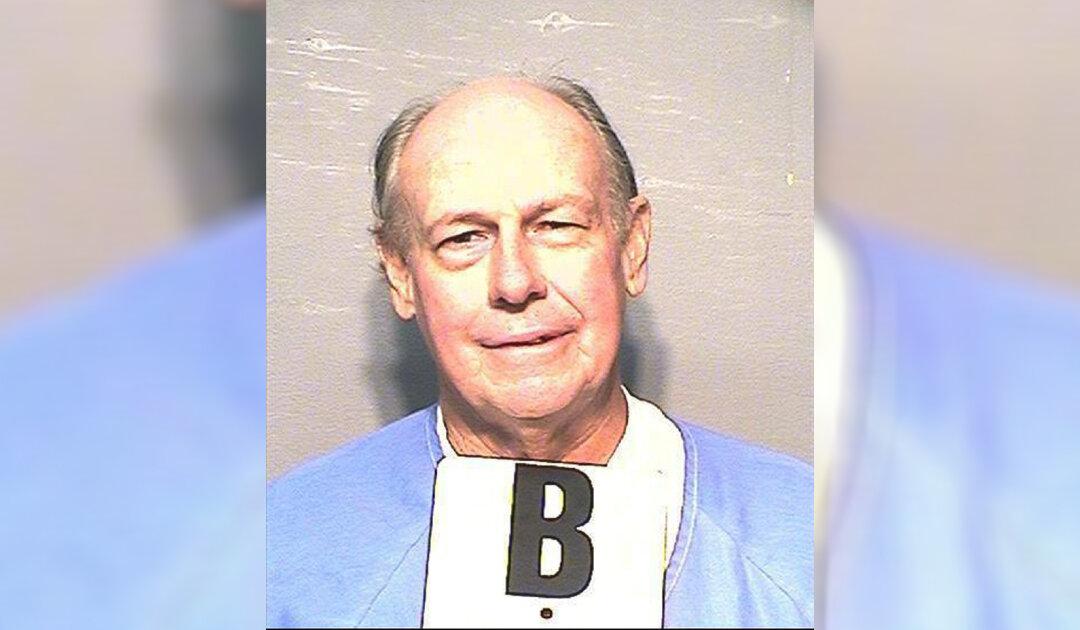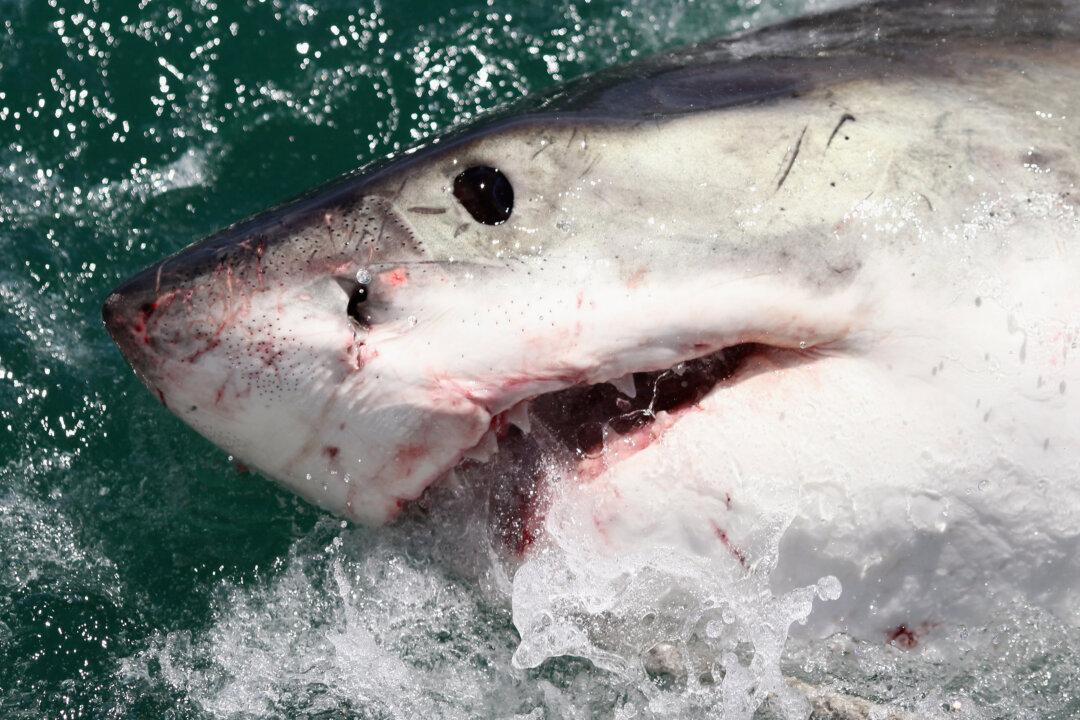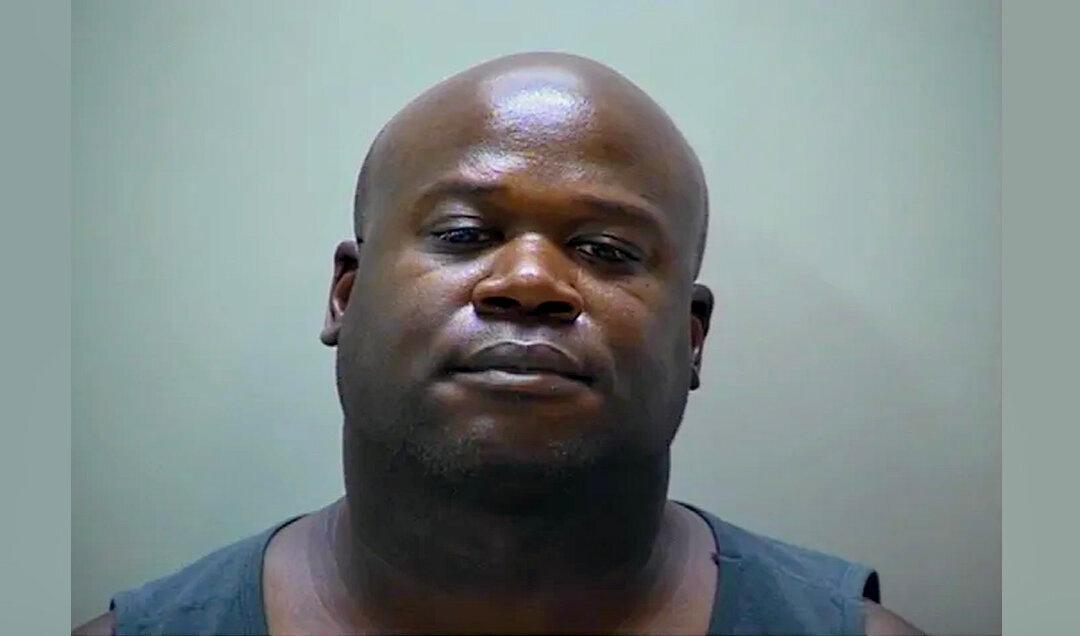A flight attendant working for one of the world’s largest airlines is being fined for showing up to work well over the blood alcohol limit on Dec. 12, 2018.
American Airlines stewardess Cynthia Struble, 64, was measured at London’s Heathrow Airport to have 93 mg of alcohol in 100 ml of blood, meaning she was four times over the 20 mg legal limit for air crew.
